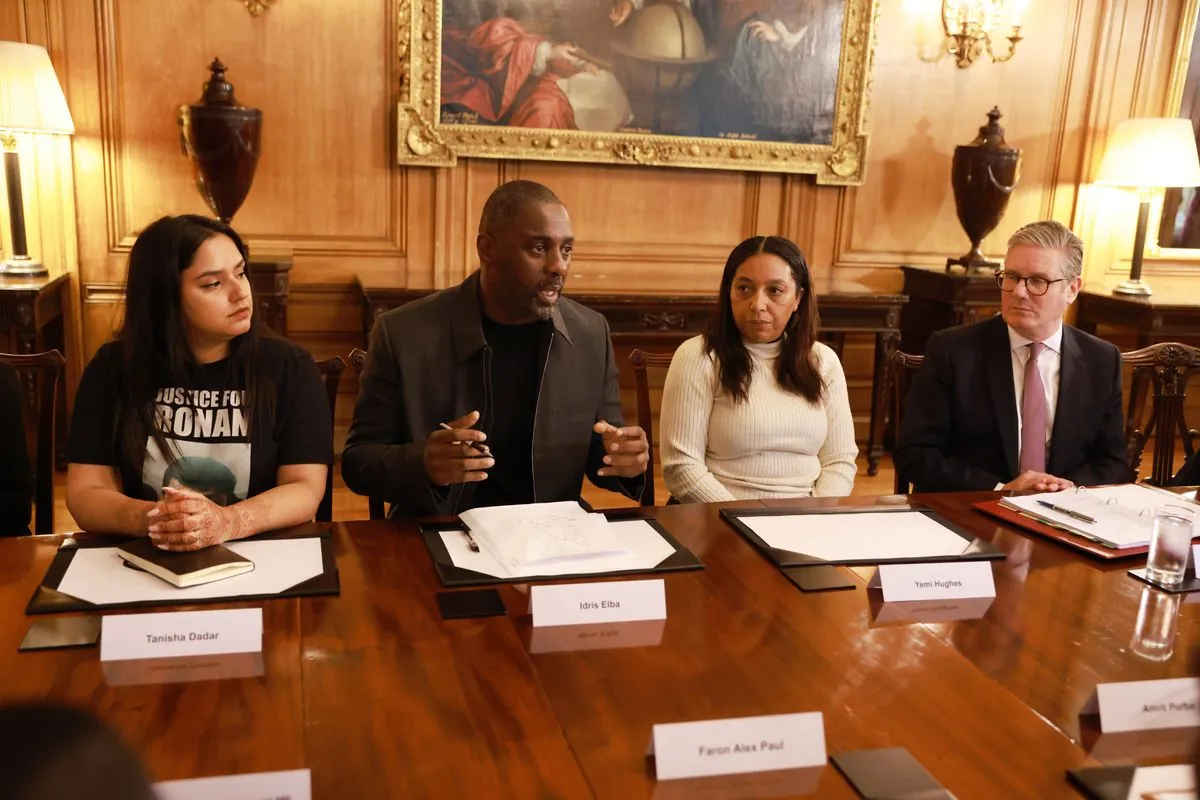UK's Knife Crime Summits: Effective Solution or Political Theater?
Multiple UK Prime Ministers have held knife crime summits, yet the problem persists. As Sir Keir Starmer convenes another meeting, questions arise about the effectiveness of these high-profile gatherings.

In recent years, the United Kingdom has witnessed a concerning trend in knife-related offenses, prompting various political responses. Despite numerous high-profile summits and legislative measures, the issue persists, raising questions about the effectiveness of these approaches.
Sir Keir Starmer, the current UK Prime Minister, recently convened a meeting at 10 Downing Street to address what he termed a "national crisis" of knife crime. This gathering brought together politicians, victims' families, youth representatives, community leaders, and technology companies, with the ambitious goal of halving knife crime rates.
However, this is not the first time a British Prime Minister has taken such action. In 2002, Sir Tony Blair held a similar summit under the emergency Cobra framework, setting targets for reducing knife crime incidents. Five years later, as he prepared to leave office, Blair controversially called for an "intense police focus" on young Black Britons he claimed were behind gun and knife attacks.

Subsequent administrations continued this trend. In 2012, David Cameron pushed for stricter penalties, ensuring that knife carriers would face more than just cautions. Boris Johnson, in 2019, pledged to "come down hard" on knife crime, promising swift arrests and court appearances.
Despite these efforts, knife crime has nearly doubled in the past 15 years. This stark increase raises concerns about the efficacy of these high-profile meetings and legislative changes.
The UK has implemented various measures to combat knife crime, including:
- Knife amnesties allowing surrender without prosecution
- Educational programs in schools
- Knife Crime Prevention Orders (KCPOs)
- Voluntary restrictions on knife sales by retailers
Critics argue that while summits may generate favorable headlines, their practical impact is questionable. Instead, they suggest that increased police presence in high-risk areas and more effective use of stop-and-search tactics could yield better results.
It's worth noting that knife crime in the UK is a complex issue, often linked to gang activity, drug-related offenses, and the controversial "county lines" drug trafficking. The problem disproportionately affects young people, both as perpetrators and victims.
While past failures should not deter future efforts, the focus may need to shift from legislative toughening to more community-based and preventative approaches. Youth services and community programs have been identified as crucial in addressing the root causes of knife crime.
As the UK continues to grapple with this issue, the effectiveness of high-profile summits remains in question. The coming months will reveal whether Sir Keir Starmer's recent initiative will break the cycle of well-intentioned but ultimately ineffective political responses to this persistent problem.
[[Home Secretary's Statement on Knife Crime]]
"We must take decisive action to protect our communities from the scourge of knife crime. This is not just a law enforcement issue, but a societal one that requires a comprehensive approach involving education, community support, and targeted interventions."


































